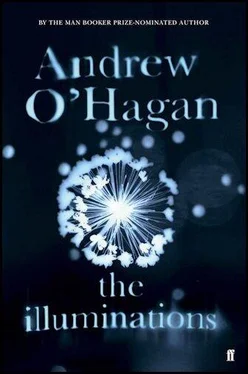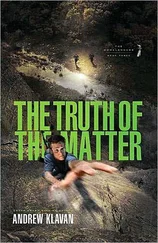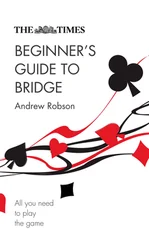‘That’s cool,’ he said. ‘I’m off duty. Everybody’s off duty for ever and that’s it.’
The friend just shook her head. She couldn’t decide if she liked his face or not. He was nice and tall but he seemed like trouble. ‘You’re a bit of a thinker,’ she said. She thought he must’ve been a student before or something like that, the way he had a bottle of Evian in the pocket of his bomber jacket.
‘A thinker,’ she repeated.
‘Oh aye. That’s me. Rudyard Kipling.’
Most of the men at the bar were older than him and they couldn’t be bothered with hen parties. They might put a coin in the pot but they were busy talking to each other and looking up at
the television to see the scores. Luke passed out the Red Cola shots to the girls two at a time. ‘Who’s the one daft enough to be getting married?’
‘A real man, at last,’ the lippy one said. Some of the men at the bar looked round and shook their heads. Luke had been shy as a student but he could remember one day walking to the Andersonian Library with the army leaflets and thinking he might be an officer and women would like it. He had been doing an essay on Thomas Hardy and one night he dreamt he was walking in uniform towards a pile of rags. He couldn’t remember the girl in the book he was reading, or the soldier, but he remembered the feeling of power he had, the sense that a woman had taken off her clothes for him and was nearby.
The girls took pictures.
Shrieked.
Downed shots.
Kelly with the lilac eyes grabbed a handful of money from the pot held by the bride-to-be. ‘Our turn,’ she said, smiling a lipstick smile and squeezing into the bar. Luke wondered what her friend’s wedding would be like and imagined men outside the function suite smoking on the steps. The noise of the fruit machine seemed to infect his sense of things, a robust, well-lighted anxiety in the corner. Maybe he had never been enough of a lad to really connect with the whole platoon. He remembered their fear that something big might never happen.
‘What’s your name?’ the girl said.
‘Captain Campbell.’
‘You’re in the army?’
‘I was, aye.’
‘We could tell.’
‘How come?’
‘There’s lots of squaddies in this town. And you can just tell them by the way they stand.’
‘Right.’
‘Not many drink in here, though.’
He looked at the bottles and the masses of postcards and Celtic memorabilia. ‘My name’s Luke.’
‘Check how you stand up straight. And check out your haircut and all that, the tanned face.’
‘Maybe I went to the Sun Splash.’
‘You kiddin’?’ her friend said, eyes bright. ‘There’s nothing you can tell her about fake tan. And that is not a fake tan you are wearing. Take it from the experts.’
Kelly smiled and handed him a shot of something very sweet and green. ‘Apple Sourz,’ she said and the barmaid put the bottle down on the counter. The barmaid seemed to know the girls at the hen party and the bride especially.
‘Oh, that’s pure disgusting,’ one of them said.
Luke ordered a lager top. The girls left in a flurry of plans and proper nouns, places to go next, battle cries and whispered invitations. The lilac-eyed Kelly stood looking for a second. ‘You’re a honey,’ she said, reaching up to kiss him on the lips. Then her fingernails cascaded goodbye in the air.
‘I think you’re in,’ the guy next to him said, nodding in a pair of paint-spattered overalls. The girl behind the bar was looking over at Luke like she knew him. He drank his pint and tried to ignore the buzz of the fruit machine and the telly. Maybe my grandmother never really knew the people in her life, he thought. Maybe none of us do. We didn’t put in the hours. A man in a Celtic top was holding up the European Cup in several
of the photographs pinned up behind the bar.
‘A whisky please; a Talisker.’
There was a barman behind there, too. He reached up and served Luke a decent one. Hand-poured. And Luke felt his mouth was instantly on fire, the whisky burning off the sugar and the nonsense of the previous drinks. His tongue shrank. His family was known for bravery but maybe it had never actually produced a brave man in all these years. He was drunk. The alcohol was now clearing a path to the loneliest part of him and when an Irish song began he stepped outside to smoke.
He had a text from Flannigan in Liverpool, out on the lash with his brother and his schoolmates.
Squad of horror-pigs down here lad total cocknoshes man I h8 them.
Dooley was struggling down in Cork, already champing at the bit to get back for another tour:
Hey Jimmy-Jimmy. Not seen the ladz or heard much fm the bitches but bored man still thinking about Ops. Weird shit sir and douche bags in the papers don’t know nothing. Totally misinformative. Im in car park waiting for Rosie to get off fuckn work have you seen the ladz?
He smoked and used the thumb of his other hand to text back his mother.
Thanks. I’m down seeing Gran but going back up to Glasgow tonight.
He wondered if other people had to think before leaving kisses. The Kilmarnock bus via Pennyburn passed and he took in the emptiness on the upper deck. Nothing is emptier than an empty bus. Seagulls drifted over the railway station and music came pounding from one of the lounge bars at the end of Countess Street. Lennox sent him a smiley face, the third that day, a solitary smiley face. To Luke it said all the things the ginger nut was trying to say. He could see Lennox talking like a hero in some Belfast pub with the boys around him lapping it up. Then Lennox would go to the jacks and piss his wages into the metal trough remembering faraway mortars and shouts down there in the valley. Leaning on the tiles and texting smiley faces to the captain.
He wrote back:
Hey Andy. Keep smiling mate.
There’s no such thing as a quiet drink. Not for Luke, anyway, and not in Bobby’s Bar on a Friday. Luke went in and out of the general cheer and at one point was chuckling to himself on a bar-stool as the noise level rose. A man in an anorak came up when Luke was past caring about military decorum or the last train. ‘I’m not being cheeky, pal,’ the guy said, ‘but can I ask you, were you in the Royal Caledonians?’ Luke turned. He swayed and the man with his hands in his pockets was still speaking. It was a question. ‘Is that your regiment?’
‘Who’s asking?’ The man was on a reluctant mission but he had something invested in carrying it off. Honour, Luke supposed, and honour was the thing that ruined a man’s happiness. He wiped his mouth and gripped the bar. Next minute he was over in the corner talking to a very fat man. Even in drink, Luke
could see the man was wider than the copper table covered in empty tumblers and packs of Regal King Size.
‘I think you knew my son.’
‘What’s his name?’
‘Mark McNulty.’
Luke knew right away. He had known the boy was local. He’d known there was a chance when he came into the town. And even through the fog of drink he knew it was the boy’s father, the soldier called Mark who was killed at Bad Kichan. He suddenly saw the boy in the terrible heat of Helmand, smiling kid, eager as anything, one of the detachment squirting him with sunscreen by the ruined fort. Looking into his father’s face and putting his hand into his, Luke saw again the boy’s fury as he shouted in the road and he saw Rashid lifting his gun and shooting him at close quarters. He saw again the boy being hit and the copper bowls erupting and the blood that came from the boy’s mouth.
‘I recognised you from the papers,’ Mr McNulty was saying. Luke was still standing next to the tables. He wanted the boy’s father to come outside to speak in private, just for a moment, because he hadn’t expected to meet him like this and he was trying to become the captain again despite being drunk. The gesture the man made with his hands made it clear he was stuck and didn’t want to move outside.
Читать дальше











